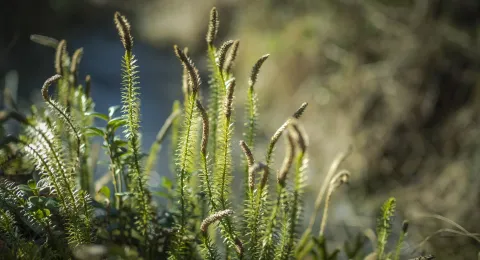There is a need to scour Finnish sheep wool in Finland, because at the moment the wool chain is hampered by the fact that the majority of wool produced in Finland is transported abroad to be scoured e.g. in England. The scouring of wool in Finland has been considered unprofitable because it requires plenty of water and energy. In addition, the processing and refinement of wool fat separated in the scouring process should be developed.
The objectives of this project are to reduce the water footprint, energy consumption and environmental impact of wool scouring, and to refine the waste streams of scouring process into valuable product. Laboratory and pilot scale filtration tests will be carried out to determine whether filtrated water can be recycled back to scouring process so that the process is sufficiently cost-effective. Since there is a need for wool dyeing, it will be also examined how dye-rich scouring water can be treated and recycled. At the heart of the project are the local spinning mills, and aim to make their washing operations as profitable and environmentally friendly as possible. In turn, the development of a simple, chemical-free and water-efficient fermentation process is developed to enable cleaning and pre-treatment of wool of a weaker quality. In this context, the effect of fermentation on the structure of wool fiber and on the staining of wool with natural colors is examined. In addition, it will be examined whether wool fat, which can be separated from the scouring waters, could be further processed into deer repellent.
The project will provide information on suitability of filtration-based process for the treatment and recycling of wool scouring waters and information on suitability of the fermentation method for cleaning and pre-treatment of wool. Information is also produced regarding management of wool dyeing. The results of the filtration and fermentation experiments will be published in 1-3 scientific articles at international level. The main results are also communicated in Finnish through social media channels. In addition, guidance materials for sheep farms will be developed in connection with fermentation, if the method proves to be effective in cleaning and pre-treatment of lower quality wool. The project also aims to develop a deer repellent based on wool fat and to establish whether there are any technical, economic, legal or patent constraints on the production of repellent. In addition, a seminar will be organized at the end of the project.The aim of this project is to increase the resource and cost-effectiveness of the Finnish wool chain and to create new opportunities for the sector. In any case, the wool must be scoured for most of the further uses, and the development of measures to reduce water and energy consumption in scouring or cleaning can directly affect the profitability of wool treatment in Finland. If there is no need to transport wool complying with the highest quality classes to be scoured abroad and if the lower quality wool can be cleaned directly on farms, a higher proportion of wool will be processed further and the valuable wool fat collected in connection with the scouring of wool can be utilized in Finland and Finnish companies.
Project period:
1.9.2023-31.8.2025
Project funding:
South Savo Regional Council



Extracting added-value from waste wool
Contact information

Tiina Rissanen


